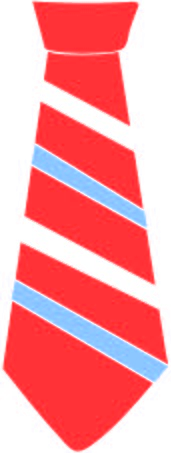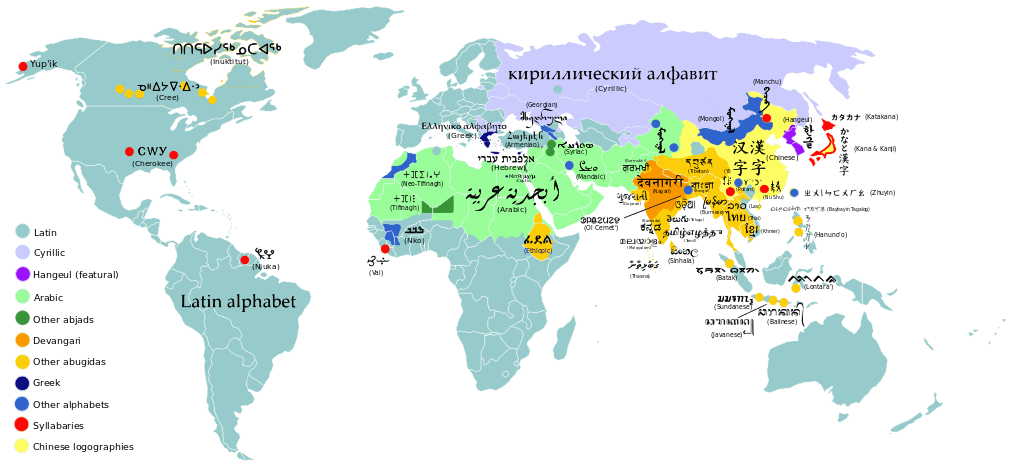Challenge 13 — Working with scripts around the world. (Science of Literacy)
In English we use what is called Latin (or Roman) script to represent the sounds of words so we can write them and read them back. But there are many other types of scripts that are used in the world with the same goal, to have the symbols represent specific sounds.
Below we have arbitrarily chosen some Arabic symbols to represent a very few English sounds.
Let us call this language Arabilish. Although these symbols may look odd and confusing to you,
we want you to feel like someone who is just learning to read in your own language. We are going
to help you learn to read these symbols through association, and by helping you compare and contrast
the sounds and symbols.
And you will learn to read from right to left. Ready?
| اى |  |
| ت اى |  |
| م و |  |
| م و ن |  |
|
Drag the English sounds to the corresponding Arabilish symbols. |
|
| م | |
| و | |
| اى | |
| ت | |
| ن | |
|
Now drag the correct English word to the Arabilish word that corresponds to it. |
|
| ن و ن | |
| ت و | |
| م اى ن | |
| ت اى ت | |
Apply your literacy skills to reading longer texts.
If you were able to do the previous exercise, you should be able to read these two sentences (start from the right side):
اى ت اى م اى ت اى. اى م اى ت ت اى م اى ت اى ت و ت اى ت.
- I
- I
- my
- my
- tie
- tie
- tie
- tie
- tight
- might
- too
- .
- .
Challenge 14 – The Trouble With Questions Part 1
In English, we use questions in many ways. When we want to get information we can ask a REAL QUESTION, like “Would you like one scoop of ice cream or two?” Sometimes we ask a question to produce an effect, these are called RHETORICAL QUESTION.
Both types of questions are found in the Bible. In the New Testament, 32% of the questions are REAL, 68% are RHETORIC. Look at underlined questions taken from Luke 22 & 23 and click to indicate whether they are Real or Rhetorical questions.
Challenge 15 – The Trouble With Questions Part 2
While some languages like Greek and English use rhetorical questions frequently, other languages like the Paama language of Vanuatu in the South Pacific rarely do. Below are examples of some different reasons people use rhetorical questions:
- Polite command: “Would you like to close the window?” = “Please close the window.”
- Rebuke: “Why don’t you ever listen?” = “You never listen to me!”
- Sarcasm: “Smoking leads to lung cancer? Who knew?” = “Obviously smoking leads to lung cancer?”
- Obviously not: “You don’t expect me to believe THAT do you?” = “I do NOT believe you.”
- Emphasis: “If I gave you the answer, what fun would THAT be?” = “Think a bit and you’ll figure out the answer.”
- Evaluation: (To a child about to eat all their Halloween candy) “Are you sure you want to eat all that right now?”
- Introduction a new subject: Setting goals is easy, but achieving them isn’t. How are you sabotaging your productivity?
Below are a few examples of rhetorical questions in the Bible. From the list on the left, choose how each rhetorical question is functioning. When you choose the correct one, the Paama equivalent will appear.
-
Job 38:4 God asked Job, “Where were you when I laid the earth’s foundation? Tell me, if you understand.”
Rebuke - translation option, use the question but supply the implied answer: “Where were you when I laid the earth’s foundation? You did not exist yet, so you could not possibly understand.”
-
Genesis 18:13, God said to Abraham, “Is anything too hard for the Lord? I will return to you at the appointed time next year, and Sarah will have a son.”
Obviously not - translation option, use the question but supply the implied answer: “Is anything too hard for the Lord? Of course not! So, I will return to you at the appointed time next year, and Sarah will have a son.”
-
John 18:35 “Am I a Jew?” Pilate replied to Jesus
Emphasis - translation option, restate the question as a statement. “You know that I am not a Jew.”
-
Matthew 7:3 Jesus taught them saying, “Why do you look at the speck of sawdust in your brother’s eye and pay no attention to the plank in your own eye?”
Evaluation - translation option, restate as a statement and clarify meaning of imagery: “Before you judge your brother’s minor faults, you should judge your own greater faults.”
-
John 4:7 When a Samaritan woman came to draw water, Jesus said to her, “Will you give me a drink?”
Polite command - translation option, retain question if it is readily understood in the language. “Will you give me a drink?”
-
Matthew 11:16 Jesus taught saying, “To what can I compare this generation?”
Introduce a new subject - translation options, restate as a statement. “I will tell you what this generation is like.
-
John 1:45-46 Philip found Nathanael and told him, “We have found the one Moses wrote about in the Law, and about whom the prophets also wrote—Jesus of Nazareth, the son of Joseph.”
“Nazareth! Can anything good come from there?” Nathanael asked.Sarcasm - translation options, restate as a statement. “Nazareth! Nothing good ever comes from there.” Nathanael said.
Congratulations on finishing the last set of challenges.
If you enjoyed learning to read using a different orthography (alphabet) or were intrigued by the various functions of rhetorical questions, we encourage you to consider Bible Translation or Literacy work. Bible Translators regularly puzzle over issues like these as they seek to make God’s Word understandable in both the language and culture of the people. When you are done click on the Home button above and choose another set of challenges.
